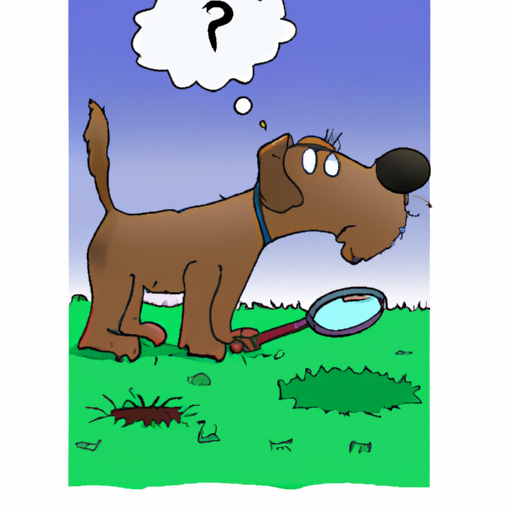As a loving and caring dog parent, you’ve likely observed some unusual behaviors in your canine companion. One such behavior that often stumps dog owners is why dogs eat worms. This behavior, while odd, is not uncommon among our four-legged friends.
Table of Contents:
1. Understanding the Behavior
2. The Potential Risks
3. How to Discourage this Behavior
4. Frequently Asked Questions
Key Takeaways:
– Dogs eat worms due to their natural instinct, dietary deficiencies, or curiosity.
– Eating worms can lead to various health issues in dogs.
– It’s essential to discourage this behavior and ensure that your dog has a balanced diet.
Understanding the Behavior
In the wild, dogs are natural scavengers and are known to eat just about anything that fits into their mouths. This behavior stems from their need to survive in the wild. Dogs may eat worms due to their instinctual behavior, dietary deficiencies, or simple curiosity. Worms may appeal to dogs because of their movement or smell, which may intrigue a dog’s natural hunting instincts.
According to American Kennel Club, dogs have the instinctual behavior to eat non-food items, a condition known as pica. This behavior can be seen in dogs eating worms, sticks, rocks, or even their feces.
The Potential Risks
While it may seem harmless, dogs eating worms can pose several health risks. These risks include:
Parasite Infection: Worms can carry parasites such as lungworms and heartworms. When a dog ingests an infected worm, these parasites can enter their system and cause severe health issues.
Digestive Upset: Worms can cause digestive upset in dogs, leading to diarrhea, nausea, and vomiting.
Dietary Imbalance: If a dog is regularly consuming worms, it could be a sign that their regular diet isn’t providing them with the necessary nutrients. Here are some of the best dog foods for sensitive stomachs which might be beneficial to your dog.
How to Discourage this Behavior
Preventing your dog from eating worms involves a variety of strategies.
-
Monitor Outdoor Play: Keep a watchful eye on your dog during their outside playtime to ensure they don’t get into anything they shouldn’t.
-
Teach the “Leave it” Command: Training your dog to understand the “leave it” command can help you stop them from eating worms and other undesired items.
-
Regular Vet Check-ups: Regular vet check-ups can help identify any dietary deficiencies that might be causing this behavior.
-
Keep the Yard Clean: Regularly clean your yard to ensure there are no worms or other critters that your dog might be tempted to eat.
-
Provide a Balanced Diet: Ensure your dog’s diet is providing them with the necessary nutrients. If your dog is eating worms out of dietary deficiency, you may want to consider switching their food. This guide can help you find the best dog food for your canine companion.
Frequently Asked Questions
Why does my dog eat worms?
Dogs might eat worms out of instinct, curiosity, or dietary deficiencies.
Is it harmful for dogs to eat worms?
Yes, eating worms can pose several health risks for dogs, including parasite infection, digestive upset, and dietary imbalance.
How can I stop my dog from eating worms?
You can stop your dog from eating worms by monitoring them during outdoor play, teaching them the “leave it” command, ensuring regular vet check-ups, keeping your yard clean, and providing them a balanced diet.
In conclusion, while it might seem odd, it’s not uncommon for dogs to eat worms. However, it’s essential to discourage this behavior to protect your dog from potential health risks. Always remember, your dog’s health and well-being are your responsibility. For more information on dog behavior and health, you can visit OneTopDog.



